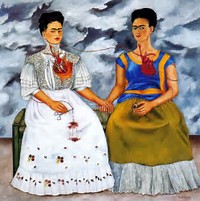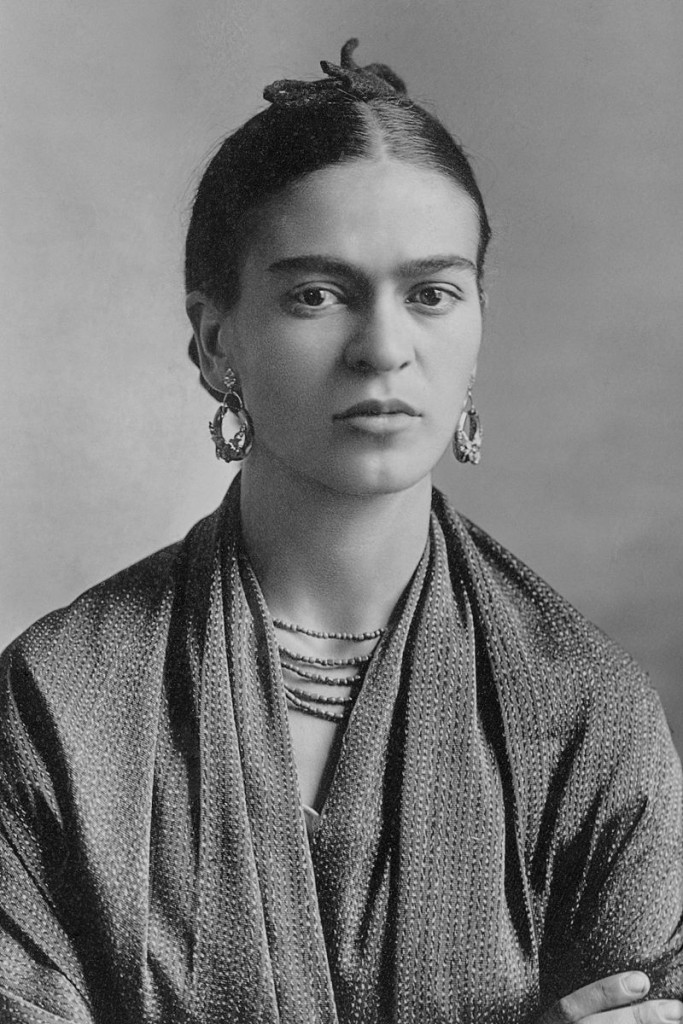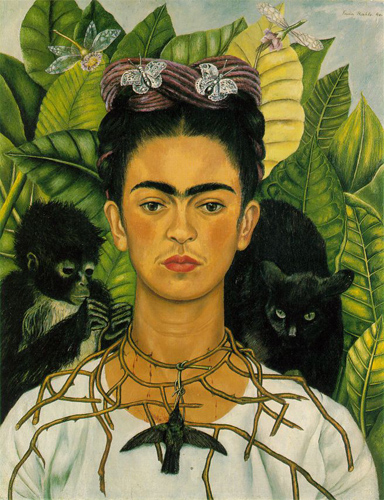Frida Kahlo

Frida Kahlo (6 July, 1907 to 13 July, 1954)
Frida, friend of Trotsky, fan of Stalin, was the creator of a loose kind of naïve folk art, largely works depicting her furrowed, furry-browed self.
In a short and unhappy life, plagued by chaotic relationships, injury and ill health, she stuck tenaciously to her tiny, exotic, surreal self-portraits, which were heavily admired in her life by a few and venerated en masse well after her death.
Because she was invariably the central feature of her works, floating Gala-like amid changing scenarios, they tended to “correspond to her evolving persona. In sophisticated ways her paintings…portrayed not merely “incidents” in her life but glimpses of her inner being and the way she perceived its relation to the world…[giving] clear indications of her development toward greater psychological complexity and technical sophistication.”*
At the end of the day, Frida Kahlo was a gloriously individual individual. No one could seriously claim her work as in the top rank, but her weird visage in a sea of colour recurs to striking effect that holds, and moves, the viewer (and that is what art does).
[*Hayden Herrera, Frida (1983), p. 219.]
Frida Kahlo and Jacqueline Lamba (1930)
Leave a comment...
While your email address is required to post a comment, it will NOT be published.




1 Comment